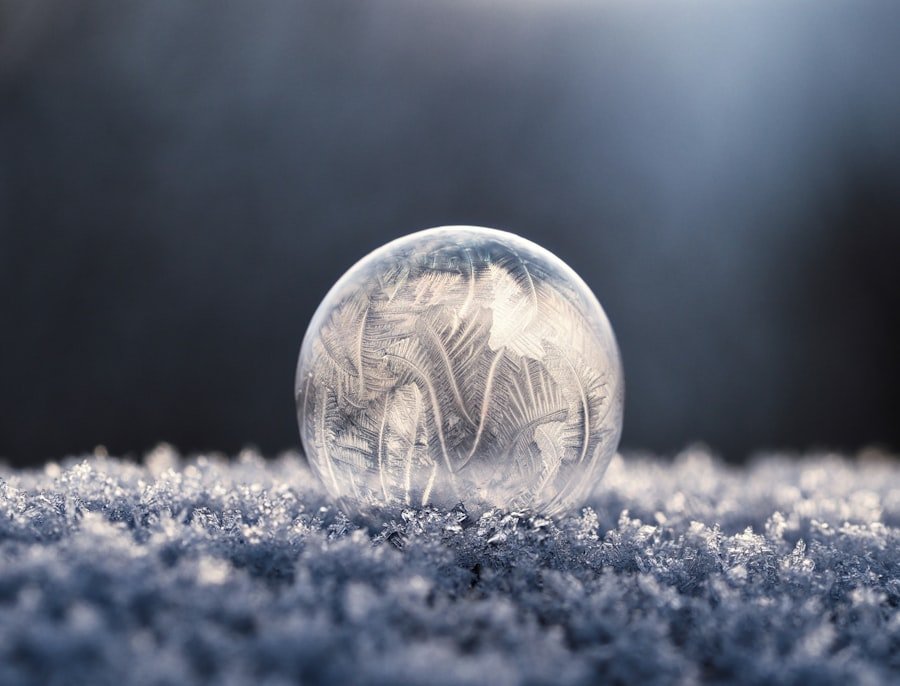When we think about skin issues, two common concerns often come to mind: cold sores and pimples. While both can be bothersome and affect our self-esteem, they are fundamentally different in terms of their causes, symptoms, and treatments. Cold sores, also known as fever blisters, are caused by the herpes simplex virus (HSV), while pimples are typically a result of clogged pores due to excess oil, dead skin cells, and bacteria.
Understanding these differences is crucial for effective management and treatment. Moreover, the appearance and location of these skin conditions can help us distinguish between them. Cold sores usually manifest as small, fluid-filled blisters that appear on or around the lips, though they can also occur in other areas of the face.
In contrast, pimples can develop anywhere on the body where there are hair follicles, including the face, back, and shoulders.
By recognizing these distinctions, we can better address our skin concerns and seek appropriate remedies.
Key Takeaways
- Cold sores are caused by the herpes simplex virus, while pimples are caused by clogged pores and bacteria.
- Cold sores typically appear as fluid-filled blisters on the lips or around the mouth, while pimples are raised red bumps with a white center.
- Cold sores may tingle or burn before the blisters appear, while pimples may be painful or tender to the touch.
- Cold sores can be triggered by stress, sunlight, or a weakened immune system, while pimples can be caused by hormonal changes, bacteria, or certain medications.
- Treatment for cold sores may include antiviral medications, while treatment for pimples may include topical creams, oral medications, or professional extraction.
Identifying the Characteristics of a Cold Sore
Symptoms and Progression
The infection typically starts with a tingling or burning sensation around the lips or mouth area. This initial phase is often followed by the appearance of small blisters that can be painful and itchy. These blisters eventually burst, leading to crusting and scabbing as they heal.
Contagious Period and Recurrence
The entire cycle can take about one to two weeks, during which time the cold sore may be contagious. It’s also important to note that cold sores often recur in individuals who have been infected with the virus, as it remains dormant in the body after the initial outbreak.
Systemic Symptoms and Prevention
In addition to their physical characteristics, cold sores can also be accompanied by other symptoms such as fever, swollen lymph nodes, and general malaise. These systemic symptoms may indicate that our immune system is responding to the viral infection. Recognizing these signs early on can help us manage discomfort and prevent spreading the virus to others.
Recognizing the Characteristics of a Pimple

Pimples, on the other hand, present a different set of characteristics. They often appear as raised red bumps on the skin, which may be filled with pus or simply inflamed.
Unlike cold sores, pimples do not typically cause systemic symptoms; instead, they are localized to the area where they form.
We may notice that pimples can vary in size and severity, ranging from small whiteheads to larger cystic acne that can be painful and take longer to heal. The lifecycle of a pimple is also distinct from that of a cold sore. Pimples usually develop over a few days and can be triggered by various factors such as hormonal changes, stress, or dietary choices.
Once they reach maturity, they may either resolve on their own or require intervention for treatment. Understanding these characteristics allows us to better identify and address our skin issues effectively.
Causes and Triggers of Cold Sores
The primary cause of cold sores is the herpes simplex virus (HSV), which is highly contagious and can be transmitted through direct contact with an infected person or contaminated surfaces. Once we contract the virus, it remains dormant in our nerve cells until triggered by certain factors. Common triggers include stress, illness, hormonal changes, and exposure to sunlight.
For many of us who experience recurrent outbreaks, identifying our personal triggers can be key to managing this condition. Additionally, lifestyle factors such as lack of sleep or a weakened immune system can also contribute to the reactivation of the virus. When we are run down or under significant stress, our bodies may become more susceptible to outbreaks.
By being mindful of these triggers and taking proactive steps to manage stress and maintain overall health, we can potentially reduce the frequency of cold sore occurrences.
Causes and Triggers of Pimples
Pimples arise primarily from clogged pores due to excess sebum production, dead skin cells, and bacteria. Hormonal fluctuations—especially during puberty, menstruation, or pregnancy—can lead to increased oil production in our skin, making us more prone to breakouts. Additionally, factors such as diet, stress levels, and certain medications can exacerbate acne conditions.
For instance, consuming high-glycemic foods or dairy products may trigger breakouts in some individuals. Environmental factors also play a role in pimple formation. Exposure to pollution or harsh weather conditions can irritate our skin and contribute to clogged pores.
Furthermore, using comedogenic skincare products—those that clog pores—can lead to an increase in pimples. By understanding these causes and triggers, we can make informed choices about our skincare routines and lifestyle habits to minimize breakouts.
Treatment Options for Cold Sores

Antiviral Medications: The First Line of Defense
When it comes to cold sores, antiviral medications are often the most effective option. Over-the-counter creams containing docosanol or prescription antiviral medications like acyclovir can help speed up healing and reduce symptoms when applied at the first sign of an outbreak. Additionally, topical treatments containing benzyl alcohol or lidocaine may provide relief from pain and discomfort associated with cold sores.
Home Remedies for Symptomatic Relief
Home remedies can also play a role in managing cold sores. Applying ice or a cold compress can help reduce swelling and alleviate pain during an outbreak. Some people find relief using natural remedies such as aloe vera gel or tea tree oil due to their soothing properties.
Important Reminders: Managing Expectations
However, it’s essential for us to remember that while these treatments may provide symptomatic relief, they do not cure the underlying viral infection.
Treatment Options for Pimples
For treating pimples, we have a variety of options at our disposal depending on the severity of our acne. Over-the-counter treatments containing ingredients like benzoyl peroxide or salicylic acid are commonly used to unclog pores and reduce inflammation. These products work by exfoliating dead skin cells and killing bacteria that contribute to acne formation.
In more severe cases of acne, we may need to consult a dermatologist for prescription medications such as topical retinoids or oral antibiotics. Hormonal treatments may also be effective for individuals whose acne is linked to hormonal fluctuations. Additionally, professional treatments like chemical peels or laser therapy can provide significant improvements for persistent acne issues.
By exploring these treatment options, we can find a regimen that works best for our unique skin needs.
Prevention Strategies for Cold Sores
Preventing cold sores involves a combination of lifestyle adjustments and proactive measures. One effective strategy is to avoid known triggers whenever possible—this might mean managing stress through relaxation techniques or ensuring we protect our lips from excessive sun exposure with lip balm containing SPF. Additionally, practicing good hygiene by washing our hands frequently and avoiding close contact with others during an outbreak can help prevent transmission.
We should also consider taking antiviral medications as a preventive measure if we experience frequent outbreaks. Some individuals benefit from daily suppressive therapy with antiviral drugs to reduce the frequency of recurrences significantly. By being proactive about prevention strategies, we can minimize the impact of cold sores on our lives.
Prevention Strategies for Pimples
To prevent pimples from forming, maintaining a consistent skincare routine is essential. We should cleanse our skin daily with a gentle cleanser that suits our skin type while avoiding harsh scrubs that can irritate our skin further. Incorporating non-comedogenic products into our skincare routine ensures that we are not clogging our pores with heavy oils or ingredients.
Additionally, we should pay attention to our diet and lifestyle choices. Staying hydrated and consuming a balanced diet rich in fruits, vegetables, and whole grains can support healthy skin from within. Regular exercise helps improve circulation and reduce stress levels—both of which contribute positively to our skin health.
By adopting these prevention strategies, we can significantly reduce our chances of developing pimples.
When to Seek Medical Attention for a Cold Sore
While most cold sores resolve on their own without medical intervention, there are instances when we should seek professional help. If we experience frequent outbreaks or if a cold sore does not heal within two weeks, it’s advisable to consult a healthcare provider for further evaluation and treatment options. Additionally, if we notice signs of secondary infection—such as increased redness, swelling, or pus—we should seek medical attention promptly.
Individuals with weakened immune systems or those who experience severe pain associated with cold sores should also reach out for medical advice. In some cases, antiviral medications may be necessary to manage outbreaks effectively and prevent complications.
When to Seek Medical Attention for a Pimple
Similarly, while most pimples can be managed at home with over-the-counter treatments, there are situations where medical attention is warranted. If we notice persistent acne that does not respond to standard treatments after several weeks or if we experience severe pain or swelling around a pimple, it’s time to consult a dermatologist for further evaluation. Moreover, if we develop cystic acne—characterized by large painful lumps beneath the skin—or if our acne leads to scarring or significant emotional distress, seeking professional help is crucial.
A dermatologist can provide tailored treatment options that address both the physical and psychological aspects of acne management. In conclusion, understanding the differences between cold sores and pimples is essential for effective management of these common skin conditions. By recognizing their characteristics, causes, treatment options, and prevention strategies, we empower ourselves to take control of our skin health and seek appropriate care when necessary.
If you are looking for safe and effective options for tattoo removal near you, check out this article. It provides valuable information on the different methods available and what to expect during the process. Whether you are dealing with a cold sore or a pimple, it’s important to take care of your skin. And if you’re in need of dry cleaning services, you can find the best dry cleaners near you by visiting this link.
FAQs
What is a cold sore?
A cold sore is a small, painful blister that typically appears on or around the lips. It is caused by the herpes simplex virus and is highly contagious.
What is a pimple?
A pimple is a small pustule or papule that appears on the skin, typically as a result of clogged pores and bacterial infection. It is not contagious and can appear anywhere on the body.
How can I tell the difference between a cold sore and a pimple?
Cold sores typically appear as clusters of small blisters, are often painful, and are caused by the herpes simplex virus. Pimples, on the other hand, are usually red or white in color, may or may not be painful, and are caused by clogged pores and bacterial infection.
Can cold sores be treated?
Cold sores can be treated with antiviral medications to help reduce the severity and duration of the outbreak. Over-the-counter creams and ointments can also help alleviate symptoms.
Can pimples be treated?
Pimples can be treated with over-the-counter acne medications, such as benzoyl peroxide or salicylic acid. In more severe cases, a dermatologist may prescribe oral medications or topical treatments.


